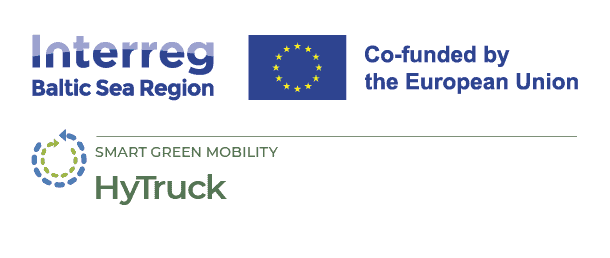
“Chicken & egg”: Ramping-up Hydrogen Refuelling Stations in the Baltic Sea Region
20 November 2024
The workshop conducted on 31st October 2024 as part of the EUSBSR Annual Forum assessed challenges for the deployment of hydrogen especially in heavy duty transport, as well as chances for further transnational collaboration.
During their keynotes, Maria Grahn, Chalmers University of Technology and Wedad Kabi, STRING Megaregion presented research’s state of art of future hydrogen development potentials in transport and gave insights into the ambitions and challenges of the implementation within the project GREATER4H where 14 hydrogen re-fuelling stations are to be built between Oslo and Hamburg in the STRING megaregion.
The keynotes were followed by a panel discussion, joining-in Staffan Lundgren, Volvo Group and Szymon Płoński, Lower Silesian Hydrogen Valley about status-quo, challenges and opportunities of hydrogen as a fuel for heavy-duty transport.
Key issues addressed include:
- Technology-openness: The need to invest into different technologies to decarbonise heavy duty transport as there is no one-solves-all-technology available yet. Participants agreed, this would be essential to increase system resilience, bridge constraints single technologies are faced with and guarantee a sufficient level of technological knowledge.
- Regulatory constraints: The current regulatory environment was regarded as impeding the ramp-up of HRS especially with regards to high regulatory barriers to produce green hydrogen. It was suggested to discuss solutions for a transition phase, supporting market establishment for hydrogen as a fuel in heavy duty transport as well as meeting the decarbonisation goals in the long run, eventually accepting blue or even grey hydrogen for a limited period of time.
- Market demand: There is a risk of AFIR to fail with regards to hydrogen in heavy duty transport. If there will be no approach assuring enough core offtake for the hydrogen provided at hydrogen re-fuelling stations, investments into HRS will require major public engagement to make private investors take Final Investment Decisions. A policy focus should be on the end-customers, i.e. truck or bus fleet operators.
According to research carried out at Chalmers University of Technology, the real ramp-up could be expected after 2040 if beneficial policy scenarios will be applied. A policy scenario putting climate change mitigation behind economic prosperity might result in scenarios where hardly any alternative fuels would be successful.





